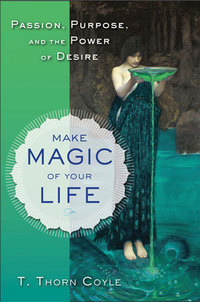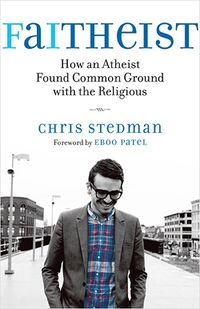Who loves books? I love books.
What are you going to do when you have a blog that is trafficked by amazingly thoughtful readers who also love books?
Start a book club. That’s what.
The BITG Book Club began in February of 2013, and will proceed onward until we’ve read everything that’s on my growing list of esoteric, philosophical, theological, ethical, and generally pagan book titles.
The newest book is announced on the first of each month. During that month we all read through the book, and join again at the start of the next month to begin unpacking the text. It’s an informal, casual conversation about text that matters.
Below is the growing list of my book club titles! Feel free to pick up with the most current title!
Follow the conversation here at BITG, and look for the Twitter hashtag: #TeosBookClub!
Book Club Titles by Month
March ’13
Make Magic of your Life: Passion Power and the Power of Desire, by T. Thorn Coyle
Join us on Twitter throughout the month of March to unpack questions related to this empowering book. Follow the hashtag #MakeMagic and be sure to include Thorn’s Twitter handle, @ThornCoyle — you’ll be able to connect directly with her online!
Do you have the sense that you were born to do something more with your life but you don’t know what that is? Do you long to step into your power and live a life of passion? Do you wish to be of greater service? Are you willing to follow your soul’s desire? Activate the magical formula known as the Four Powers of the Sphinx.
The four powers — To Know, To Will, To Dare, and To Keep Silence — help bring about a profound shift in how we move through the world. They point us toward our highest purpose and show us what to do, both practically and spiritually, once we’ve found it. They will lead us to a life of magic. Find your soul’s work. Follow desire. Live a life that matters.
From the introduction:
“Working magic means showing up with your demons and your divinity, your sorrow and your joy. Alchemy only happens when we are willing to go through the processes of gathering together, refining, pouring, and solidifying. In the end, we have something fine to hold.”
February ’13
Faithiest: How an Atheist Found Common Ground with the Religious, by Chris Stedman
Read the conversation taking place around this title.
The stunning popularity of the “New Atheist” movement—whose most famous spokesmen include Richard Dawkins, Sam Harris, and the late Christopher Hitchens—speaks to both the growing ranks of atheists and the widespread, vehement disdain for religion among many of them. In Faitheist, Chris Stedman tells his own story to challenge the orthodoxies of this movement and make a passionate argument that atheists should engage religious diversity respectfully.
Becoming aware of injustice, and craving community, Stedman became a “born-again” Christian in late childhood. The idea of a community bound by God’s love—a love that was undeserved, unending, and guaranteed—captivated him. It was, he writes, a place to belong and a framework for making sense of suffering.
But Stedman’s religious community did not embody this idea of God’s love: they were staunchly homophobic at a time when he was slowly coming to realize that he was gay. The great suffering this caused him might have turned Stedman into a life-long New Atheist. But over time he came to know more open-minded Christians, and his interest in service work brought him into contact with people from a wide variety of religious backgrounds. His own religious beliefs might have fallen away, but his desire to change the world for the better remained. Disdain and hostility toward religion was holding him back from engaging in meaningful work with people of faith. And it was keeping him from full relationships with them—the kinds of relationships that break down intolerance and improve the world.
In Faitheist, Stedman draws on his work organizing interfaith and secular communities, his academic study of religion, and his own experiences to argue for the necessity of bridging the growing chasm between atheists and the religious. As someone who has stood on both sides of the divide, Stedman is uniquely positioned to present a way for atheists and the religious to find common ground and work together to make this world—the one world we can all agree on—a better place.

